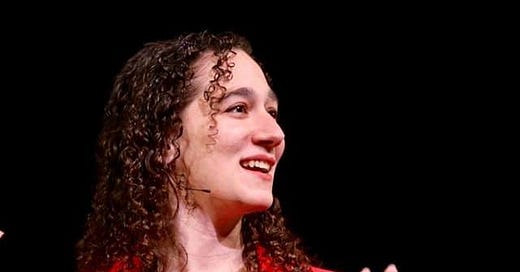Just a brief post from the road—I had the pleasure of keynoting the American Solidarity Party Convention this weekend, and speaking on “The Politics of Dependence.”
For a little excerpt from my text:
How reasonable can our parties and our politics be if they don't start with an honest account of the human person?
Here we are, the day after a Supreme Court decision on forgiving student debt—when our president made a clumsy attempt to reckon with who we ask to bear the cost of our misaligned, administrator-serving college system.
Here we are, in the middle of a rolling Medicaid purge, as over 1.5 million people come off the rolls, mostly not because found ineligible, but because of missing paperwork.
Here we are, in a border state, as families face heightened barriers to claiming asylum, and our nation makes it impossible to “come the right way” through metering and refugee caps.
Here we are, a week after the anniversary of the Dobbs decision, in a nation still turning over the question of whether a woman and her baby are two different orders of being.
In the womb, at the border, in sickness, in debt, our politics see need as a sign that something has gone wrong.
On each issue, one party may try to fix blame, while the other applies a band-aid fix, They trade places; Republican states treating migrants and refugees as insidious invaders.
Meanwhile, Democrats plead for children separated from their parents at the border but say there should be no limits on mother-child separation in the womb.
Cages or curettes.
What does a real alternative look like? The politics of dependence begin by acknowledging that dependence is our default state, and self-sufficiency the aberration. Our lives begin and (frequently) end in states of near total dependence, and much of the middle is marked by periods of need.
A world that holds up independence as the ideal offers us two rival duties: to obscure our dependence and to be resentful of it.
The speech is partially adapted from my essay “Dependence” for Plough, and my keynote also draws on O. Carter Snead’s What it Means to Be Human, Natalie Carnes’s Motherhood: A Confession, and Lewis Hyde’s The Gift.




Thank you for coming Leah. The ASP's presidential candidate Peter Sonski, and especially his running mate Lauren Onak, are going to contribute a lot to these conversations.
What a privilege to get to meet you and see you speak in person! Thank you for sharing your brilliance and your mastery of words with us.